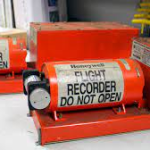A needle-free vaccination for the Zika virus is making progress following initial positive results from a clinical trial. PharmaJet, the creators of the Stratis needle-free device, are working in collaboration with the National Institutes of Health to thoroughly study the effectiveness and safety of an experimental vaccine that could provide relief to many areas across the globe.

Needle-free technology
Preventing issues such as cross-contamination, needle-related injuries and eliminating the re-use of needles, the Stratis device delivers medication and vaccinations through a high-speed, narrow fluid stream. The device can deliver a vaccination in less than half a second, making it efficient, easy to use and safe.
The CEO of PharmaJet, Ron Lowy, has said that they are encouraged by the early results of the trial, both in terms of the technology itself and the potential vaccine. The completion of phases one and two of their trial with the NIH is next on the agenda, with clinical trial assistants working hard to ensure this process is completed efficiently, as there will undoubtedly be many individuals eagerly anticipating the results.
Clinical trials for the Zika vaccination
As the National Institutes of Health reports, the clinical trial, launched by the National Institute of Allergy and Infectious Diseases, began in the summer of 2016 and aims to study the vaccine’s ability to produce a response from the body’s immune system to protect against the development of Zika. Eighty volunteers between the ages of 18 and 35 are participating in this initial trial, with experienced and knowledgeable clinical trial assistants, such as http://www.gandlscientific.com/clinical-trial-assistants/, proving to be invaluable in this process.
Because this is an experimental vaccine, evaluating its safety is of utmost importance. The director of the National Institute of Allergy and Infectious Diseases, Anthony S. Fauci, M.D., has stated that initial animal testing results were positive and that the team is pleased that a human clinical trial is now underway.
The National Institutes of Health have stated that following a successful trial with positive immune response and safety results, the second phase of trials should begin at the beginning of 2017 in countries directly affected by the Zika virus. While it may be some time before such a vaccination is available on a commercial basis, initial signs of early promise are essential to vaccine development.





















+ There are no comments
Add yours